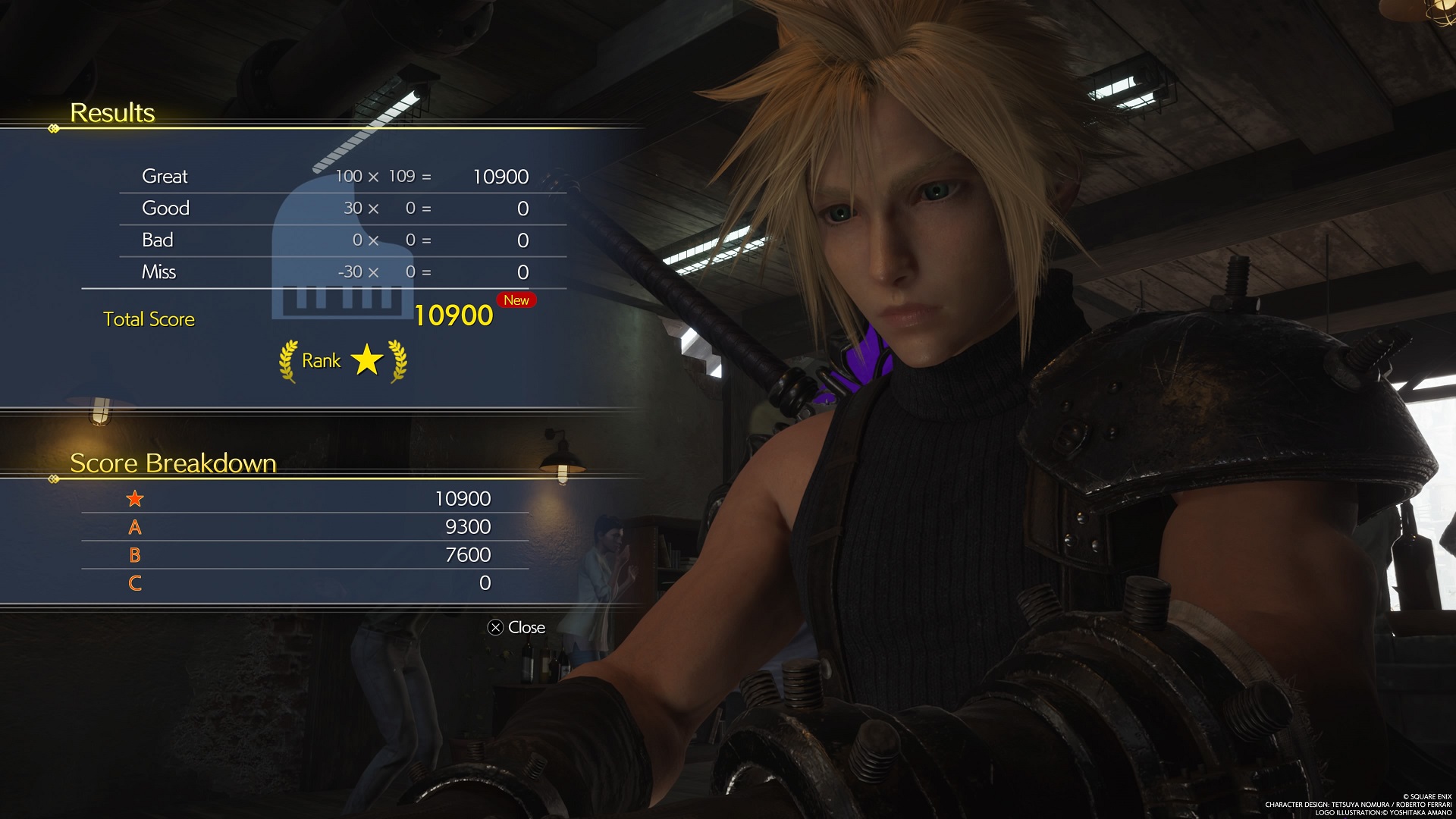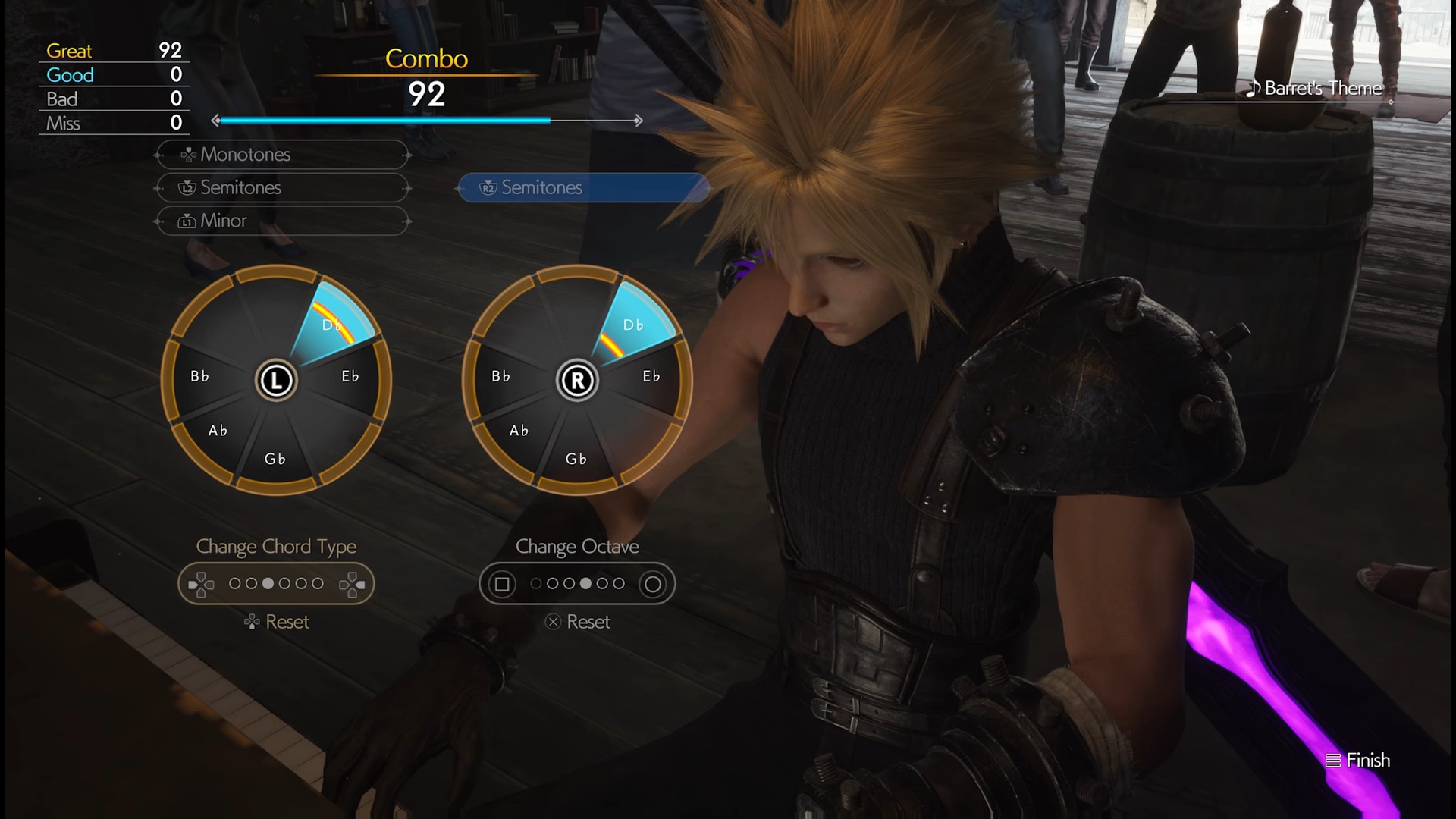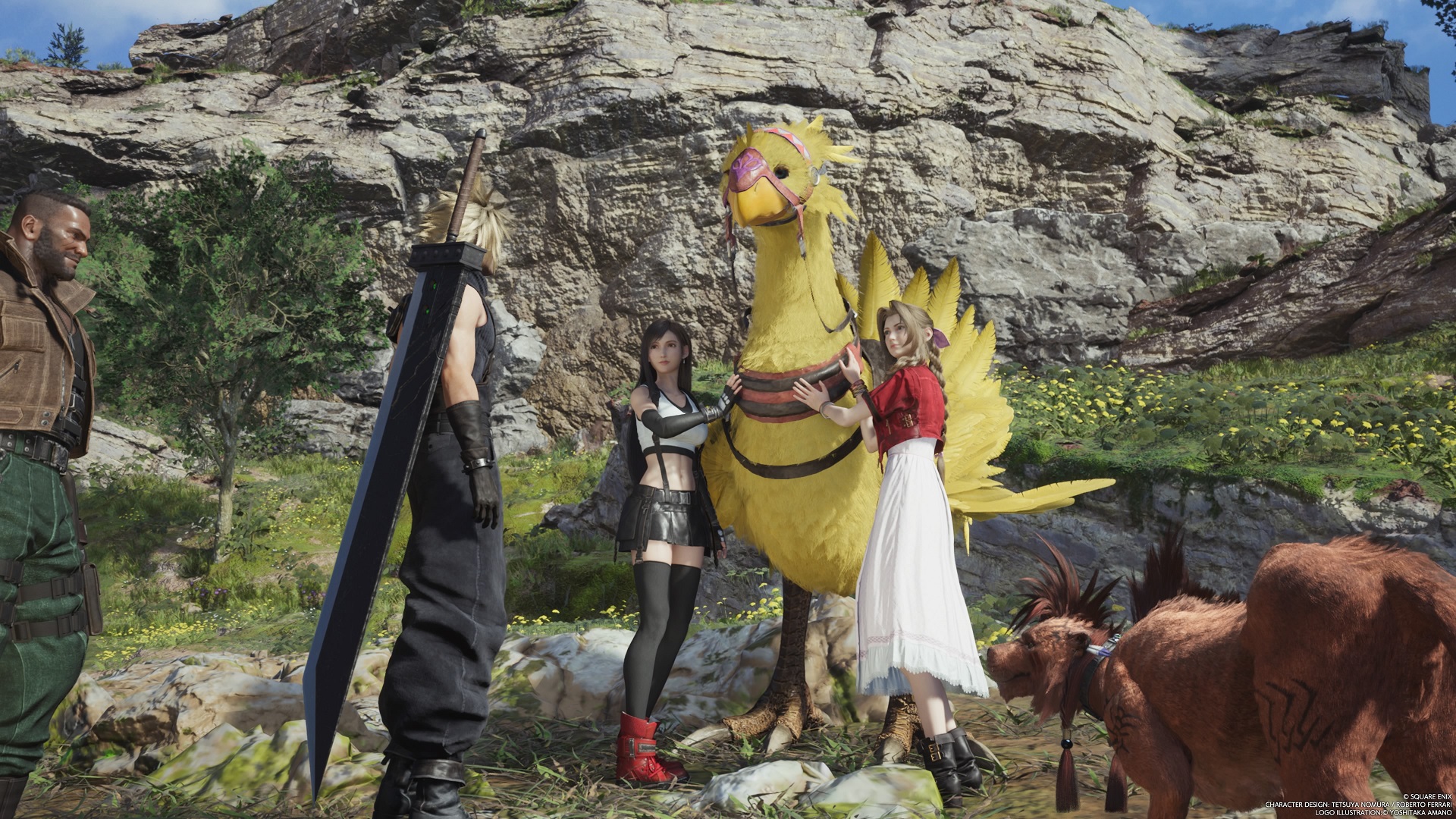Perfect scoring the Final Fantasy 7 Rebirth piano mini-game is giving me a greater rush than any RPG boss battle
Opinion | All those years spent playing Persona rhythm games has trained me for the Final Fantasy 7 Rebirth piano mini-game

In Final Fantasy 7 Rebirth, my heart is pounding. My palms are sweating as I grip the PS5 DualSense controller like my life depends on it. My eyes are now laser-focused on the screen, with my thumbs constantly trained over both analog sticks. At this moment, I'm no longer sitting on my couch in my living room, I'm behind the virtual keys of a piano, and nothing matters more to me than hitting every single note at just the right time. With the left and right analog sticks corresponding to the melody and chords respectively, I watch for the yellow bars as they appear and fall down notes on either side. When they reach the end of the note, that's my que, and I start to fall into a flow state with every note I successfully play.
I catch sight of how high my combo is, but I can't think about it too much. If I do, I just know the pressure of not missing any notes will mount and I'll slip up. As the recognizable theme I know so well starts to wind down, and I successfully play the last few notes, it takes a moment for it to sink in. I've done it. A perfect performance. Loosening my grip on the controller and letting out a breath I didn't even realize I was holding, the exhilaration I then feel is unlike any other. Playing Final Fantasy 7 Rebirth's updated take on the classic piano mini-game - which also featured in the original 1997 release - is giving me a greater rush than any boss battle or tough encounter. And as a result, I'm determined to try and perfectly perform each and every musical score I come across in the world.
Can you play me a memory?
If you tried out the Final Fantasy 7 Rebirth demo, then chances are you've already dabbled with this mini-game in Nibelheim. As a homage to the original game, you first come across some ivory keys in Tifa's bedroom in the famous flashback sequence. But there are many pianos throughout the sprawling world to find, with music sheets to discover along the way that let you perform a series of classic tunes. I actually ended up getting unexpectedly emotional when I tried out the first song, On Our Way. It's a theme I'm very familiar with, and I can't think of a more fitting one to introduce the mini-game in Rebirth. It felt like such a full circle moment for me – I'd heard it in the original and also in Remake, and now, years later, I'm the one actually playing it. I'm sure other fans will get a similar kick out of discovering the music you can perform.
Not unlike the way you can train yourself to learn the patterns of a particularly fierce enemy – so that you can dodge out of the way or ready yourself for their attacks – it's similarly satisfying to get into the rhythm of each song and start to memorize the note cues. Tifa's theme, for example, is one song I practiced multiple times, so much so that I kept finding myself preemptively nodding along to each note as it landed. I kept on missing the same two notes every time, but once I successfully performed it perfectly and got it down, nothing beat the exhilaration I felt. Practically every time I nailed any of the songs I came to find, the excitement of pulling off my own personal achievement never died down.


Final Fantasy 7 Rebirth is at its best when it embraces its goofy side
It certainly won't be for everyone, but I just click with this particular mini-game. After many, many sessions with it throughout my time in Rebirth, I've come to the conclusion that I keep coming back to it thanks to my history with rhythm games. I've always found rhythm-based challenges to be quite relaxing, which I know isn't universal. But not unlike racing in games, I fall into a flow state as my attention hones in on trying to successfully hit buttons in time - or in the case of racing, reach the finish line.
One of the first rhythm games I played to death was actually Persona 4: Dancing All Night on my PS Vita. Some years later, I picked it up again on the PS4, along with Persona 3: Dancing in Moonlight and Persona 5: Dancing in Starlight. I enjoyed them so much, I even went to the effort of platinuming them all, and in a sense, they trained me for the way you play the piano in Rebirth. With moves to hit on either side of the screen, the Persona games tap into the same kind of coordination as the piano mini-game, with you trying to press buttons or move the analog sticks in time to the music. It's not exactly the same, but I definitely think it's helped me quickly get to grips with the piano keys.
I'm not in any way musically gifted, and I certainly couldn't play a song without the yellow bar prompts, but after seeing so many fans get creative with the mini-game in the demo, I have an even greater appreciation for the updated design of it in Rebirth. It's a nifty little mini-game that feels very rewarding to conquer, and I have spent hours playing it. Being able to perform themes I know so well just makes it extra special, and with the promise of just a few more sheets of music to find, and some perfect scores already behind me, I know I'll continue to chase after the same rush my first perfect performance gave me.
Weekly digests, tales from the communities you love, and more
Final Fantasy 7 Rebirth review: "Meaningful improvements make the step outside Midgar worth taking".

I started out writing for the games section of a student-run website as an undergrad, and continued to write about games in my free time during retail and temp jobs for a number of years. Eventually, I earned an MA in magazine journalism at Cardiff University, and soon after got my first official role in the industry as a content editor for Stuff magazine. After writing about all things tech and games-related, I then did a brief stint as a freelancer before I landed my role as a staff writer here at GamesRadar+. Now I get to write features, previews, and reviews, and when I'm not doing that, you can usually find me lost in any one of the Dragon Age or Mass Effect games, tucking into another delightful indie, or drinking far too much tea for my own good.


